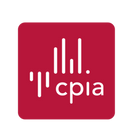Upcoming Measure Impact course is set to offer new content, expanded lectures and discussions on key topics and much more
The CPIA program is preparing its third delivery of its Measure Impact course starting in January 2022. The course focuses on building empirical evidence and designing monitoring, evaluation, and learning strategies that are the best-fit for one's organization.
"We have several updates underway for the new offering. We are building the course on the learnings from the recent research undertaken for the WHO, World Bank, and others, to update and expand the lectures and discussions on several key topics," said Prof. Christopher Cotton, who is leading the course.
One update is that the course will now spend more time developing the fundamental skills needed to review and understand the existing evidence base and past evaluations and policy analyses. Taking stock of the existing evidence base, what do we really know about a topic? How confident are we of the past results? What uncertainty and knowledge remain that can be assessed with future evaluations?
Another update expands the coverage of qualitative and mixed methods evaluation techniques. The course was originally designed around quantitative program evaluation. The new updated course will spend more time exploring qualitative evaluation techniques, such as outcome harvesting and the use of focus groups and key informant interviews, in order to better understand perceptions around projects and policies, unintended effects, and the channels through which programs achieve impact.
Similarly, we will expand our overview of how machine learning can be used to improve evaluations, from text mining to big data analyses. We will show how state-of-the-art tools can be used to explore connections between data, develop better measures of outcomes (e.g., using sentiment analysis to measure changes in attitudes), and explore new sources of evidence (e.g., photos, recordings, news coverage). The course will introduce these topics and provide students with the understanding they need to consider such approaches for the evaluation of their own projects.
Finally, the course will spend more time reviewing techniques for assessing broad impacts across communities or countries. While the course has largely been focused on the evaluation of programs and interventions, the updates will ensure that students also learn about the evaluation of major policy changes that intend to change outcomes across economies or societies more broadly defined. These updates will incorporate lessons from government responses to COVID-19, and the impact of policy on health, education, and economic outcomes.
"Past offerings of the course have received great reviews from participants," explained Prof. Cotton. "The intention of these updates isn't to replace any of the existing content, but rather to take a deeper look at some of the topics that got only a high-level treatment during past semesters."
For those who have taken the Measure Impact course before, we will make these materials available to you via alternative means. Stay tuned.
Learn more about the course: Evaluating Impact

